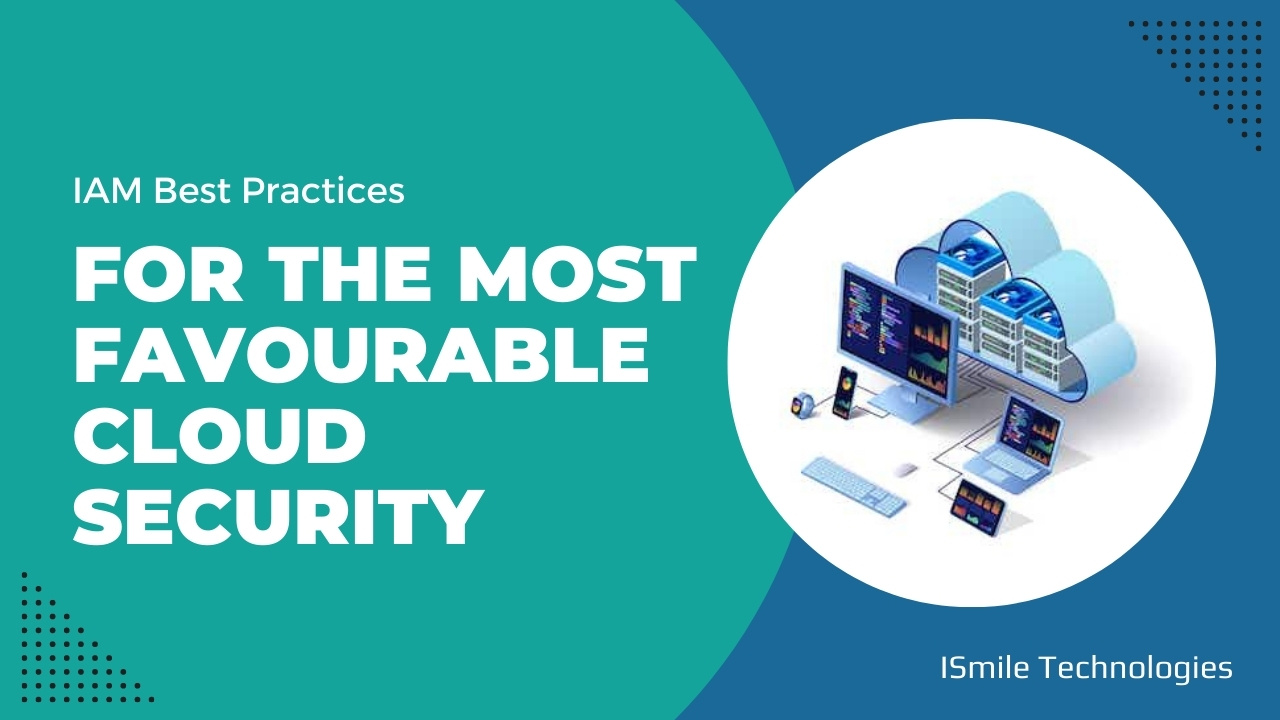In the recent past, most organizations have had to speed up their efforts to harness the cloud. But there is one obstacle that needs to be overcome: Security. When cloud security adds up to the complexities of hybrid or multi-cloud environments, organizations may go off track on their journey to the cloud. Fortunately, we have modern identity and access management (IAM) solutions, which have emerged as a one-stop solution for the cloud security problem. With the right IAM solution, you can navigate the cloud securely. You can secure your cloud assets against malicious access with a sound IAM strategy. The right IAM approach helps identify, authenticate, and authorize users and provides user-specific access to various cloud resources, services, and applications. In this post, we are going to discuss the IAM best practices that are the best for cloud security.
1. Integrate cloud-based IAM with enterprise security
Today, many organizations rely on ‘security silos’ that use different strategies and technologies. But then, this reliance can be counter-productive over some time. Instead, organizations should create an integrated security model. Organizations will have to integrate cloud-based identity management solutions with enterprise security in this model.
2. Understand access controls
Access management for the cloud is essential. Enterprises must be aware of who has what access to the cloud, the level of access, and all possible tasks they can do with the access they have. They can then leverage AI and ML to understand the processes that control access across your cloud environment. By using these insights, you can monitor your cloud and restrict malicious access to the cloud.
3. Grant least privileges
When creating the cloud IAM strategy, you must follow the ‘principle of least privilege,’ i.e., grant the minimum permissions to perform the required task. Find out what level of access users need to do their duty, and create IAM policies with which they can perform only those tasks. It is prudent to provide minimum access permissions at the start and then grant additional permissions as one proceeds. Starting with lenient permissions can be risky, and rolling them back later can be challenging.
4. Strong password policy
Devise a firm password policy that will make it mandatory for your users to create strong passwords and update them regularly. The password policy must state the requirements, like the minimum password length and characters to be used. It should also define how frequently the password must be rotated. It is advisable to automate the password change as many tend to ignore this vital aspect.
5. Ensure multi-factor authentication
Make multi-factor authentication (MFA) mandatory for all users. Companies that don’t implement extra layers of security for identity protection are more vulnerable to credential abuse & security breach. By launching a credential-based attack, intruders can compromise your data. The use of MFA can avert this situation.
Ready to experience the full power of cloud technology?
Our cloud experts will speed up cloud deployment, and make your business more efficient.
6. Privileged accounts monitoring
To protect critical assets, you must secure privileged accounts. Cybercriminals prefer to target these privileged accounts to access an organization’s valuable resources. To secure privileged accounts, one must isolate these accounts from the risk of being exposed to attackers.
7. Enable conditional access
It is widespread that your employees and clients use your cloud resources very often by using various devices and apps from different locations. Hence, organizations must ensure that such devices meet the required security and compliance standards. Create access control policies keeping the conditions for accessing your cloud resources in mind.
8. Regular audits
The cloud security domain is ever-evolving. The cloud identity management framework must regularly be reviewed, and plans must be made for future security improvements. The user credentials must be regularly audited, and the lifecycle of passwords and access keys must be tracked. The regular audits will highlight the vulnerabilities present in the cloud environment.
9. Active monitoring
Organizations must deploy an identity monitoring system to quickly find any suspicious activities and send instant alerts for a prompt response. You implement a method that can quickly identify attempts to illegally sign in from unknown locations, new/infected devices, and suspicious IP addresses.
With the increase in cloud adoption, IAM solutions will likely continue to gain popularity for addressing security issues. Many businesses have already realized the need for a strong IAM strategy to deal with the ever-evolving security demands. Technical strategists are accelerating cloud adoption to transform the technological landscape and increase business agility. But with cloud adoption, many cloud-related tasks come up, which, if not properly managed, may give lower ROIs than expected. Schedule your free assessment today.








